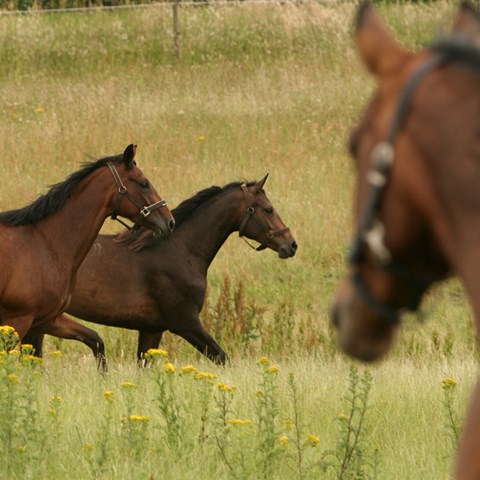Participants joined from all over the world to learn about human-horse interactions and horse welfare, and why research is important when discussing the sustainability of equestrian sports. Students from the Nordic countries Sweden, Finland, and Norway, joined with students from the other side of the world: Hong Kong, Australia, and Pakistan, as well as United Kingdom and Czech Republic. International leading scientists in equitation science, animal welfare science and ethics as well as professional coaches provided the backbone for the course, which covered a wide range of topics. Cognitive and sensory abilities of horses, assessment and definition of horse welfare, alleviation of stress and training methods but the invited lecturers also covered broader topics such as the equine economy, ethics of equitation, and challenged the students to build personal skills in empathy, curiosity and vulnerability when discussing hot topics such as “the social licence to operate” in equine sports.
“Adapting the course to the virtual, online nature of many post-COVID activities was a challenge, but it also enabled students from all over the world to participate which greatly facilitated collaboration, exchange of ideas, and fruitful discussions.” Said Dr Maria Rørvang from the Swedish University of Agricultural Sciences (SLU), who organised the course together with Dr Elke Hartmann (SLU). “The ability to bridge science with practise is an essential skill for future equitation scientists in order to improve horse welfare” said the course organisers, “and we hope this course has enabled reflection and skill building of such abilities”, they continued.
Equitation science is a scientific discipline which uses robust quantitative and qualitative research methods aiming to measure and define the impact of human interventions on horse behaviour and welfare. “Horse sport is currently under the public scrutiny, especially after the 2020 Olympics, and without a social license to operate, we might not be seeing horse sports in the future” said Dr Orla Doherty, one of the invited guest lecturers and Senior Vice President of the International Society of Equitation Science. “Innovative technology and research such as measurement of the forces applied by nosebands to estimate the contact between equipment and horse, could help to limit the emotiveness from the horse welfare debate”, she added.
The course has also challenged the students on ethical questions such as: Is a horse more like a cow or more like a dog? And what are ethically acceptable ways to use horses? Professor Peter Sandøe from Copenhagen University led these ethics discussions, which were designed to enable the students to openly discuss difficult topics. “With these exercises we hope the students reflect upon their own ethical stand, and stay open-minded and reflective when discussing ethical aspects of equitation”, Prof Sandøe said. “Students working within equitation science will need such skills in the future discussions of horse welfare”, he continued, “new ways of using horses e.g. for nature conservation will challenge our ideas of good horse welfare”, he added.
The course ended in October, with a virtual panel discussion about skill building in empathy, curiosity, and vulnerability with professional coach Lisa Ashton, leading the discussions. “It is crucial to coach the future equitation science professionals to help horse’s live their best life. It is important not to be afraid to change our minds, to be curious on each other, and to be the change for horses”, Ashton said at the panel discussion.
